Login
SubscribeNews & Opinion
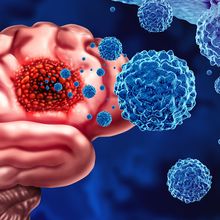
Epigenetic Marks May Cause Brain Tumor Formation
Jennifer Zieba, PhD | Sep 19, 2023 | 3 min read
Scientists established an epigenetic mouse model for glioma, providing insight into how epigenetics can initiate cancer.

A Rare Genetic Mutation Protects Against Alzheimer's Disease
Hannah Thomasy, PhD, Drug Discovery News | Sep 17, 2023 | 4 min read
Data from a highly resilient individual guided researchers to new potential therapeutic targets.
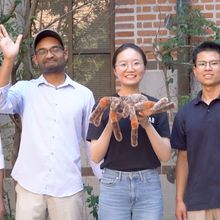
2023 Ig Nobel Prize for Gripping Work on Dead Spiders
Meenakshi Prabhune, PhD | Sep 15, 2023 | 3 min read
Rice University researchers claimed the Ig Nobel Prize for upleveling biorobotics by transforming deceased spiders into robotic grippers.
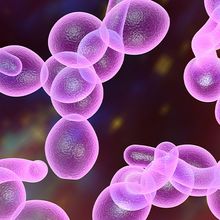
A Fungus Plays Tug-of-war for Metal Ions
Laura Tran, PhD | Sep 14, 2023 | 3 min read

2024 Breakthrough Prizes in Life Sciences
Danielle Gerhard, PhD | Sep 14, 2023 | 10 min read
This year’s Breakthrough Prizes honor advances in CAR T cancer therapies, cystic fibrosis, and Parkinson’s disease.
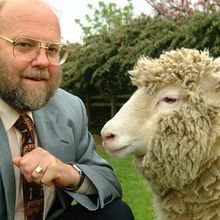
Ian Wilmut, Famed Scientist Who Led the Creation of Dolly the Sheep, Died at 79
Shelby Bradford, PhD | Sep 12, 2023 | 3 min read
Knighted in 2008, Sir Ian Wilmut revolutionized the field of cloning, stem cell research, and regenerative medicine.
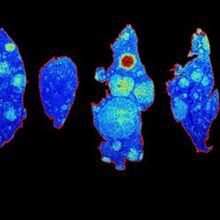
Glycogen Metabolism May Play a Key Role in Pulmonary Fibrosis
Charlene Lancaster, PhD | Sep 11, 2023 | 4 min read
Researchers discover that glycogen and N-linked glycans accumulate in fibrotic regions of the lung and may be important for therapy development.

Trimming Undruggable Cancer Targets
Deanna MacNeil, PhD | Sep 13, 2023 | 4 min read
Researchers took aim at mucins, glycoproteins that protect cancer cells from drugs and the immune response, and engineered a revolutionary targeted tool for oncology and beyond.

A Long and Unhealthy Life?
Aparna Nathan, PhD | Sep 13, 2023 | 3 min read
A new mouse model shows that the Myc protein has complex effects on aging and cancer.
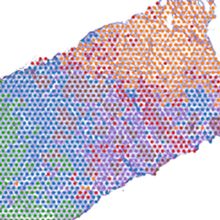
Poor Cancer Prognosis Associated with a Transcriptional Signature
Charlene Lancaster, PhD | Sep 11, 2023 | 4 min read
Researchers connect a tumor’s leading edge transcriptional profile to poor survival outcomes across cancer types.

Keeping Older Muscles Strong
Hannah Thomasy, PhD, Drug Discovery News | Sep 5, 2023 | 5 min read
From stem cell-recruiting gels to hormone cycle restoration, Tracy Criswell has big ideas about how to combat age-related decline in muscle regeneration.

Cancer Cells Need Fatty Acids to Survive in the Brain
Danielle Gerhard, PhD, Drug Discovery News | Aug 30, 2023 | 3 min read
Using a mouse model of breast cancer brain metastasis, researchers showed that tumor cells require fatty acid synthesis to grow, which offers a potential therapeutic target.
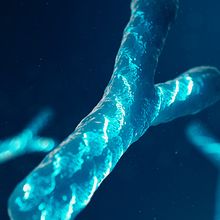
Closing the Gaps in the Human Genome: Why Y Was the Final Hurdle
Kamal Nahas, PhD | Aug 28, 2023 | 4 min read
For two decades, scientists struggled to fully sequence the Y chromosome. Finally, researchers have mapped its full length thanks to recent advances in sequencing technology.

A Novel Tool to Explore the Gut-brain Connection
Anna Napolitano, PhD | Aug 28, 2023 | 3 min read
Scientists used a vibrating capsule to assess people’s gut sensitivities and understand how the brain interprets these signals.

Journey to the Center of the Ear
Niki Spahich, PhD | Aug 28, 2023 | 5 min read
An aqueduct connecting the brain to the ear may make gene therapy for hearing loss less invasive.

Predicting the Next Level of CRISPR Control
Deanna MacNeil, PhD | Aug 28, 2023 | 3 min read
Scientists combine the power of genome-wide screens and machine learning to unlock the secrets of transcriptome engineering with Cas13.

Worms Frozen for 46,000 Years are the Oldest Known Living Animals
Natalia Mesa, PhD | Aug 15, 2023 | 5 min read
Nematodes buried in Siberian permafrost may be able to stay in a state of suspended animation indefinitely, according to recent findings.

Specialized T Cells Patrol Human Cornea
Rebecca Roberts, PhD | Aug 22, 2023 | 4 min read
A new imaging technique puts the immune system of the eye in perspective, challenging a long-held status quo.
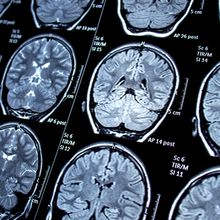
Defending against Dravet
Aparna Nathan, PhD | Aug 21, 2023 | 3 min read
Gene therapy may be the first step toward curing a rare genetic epilepsy.
